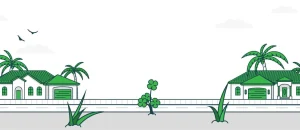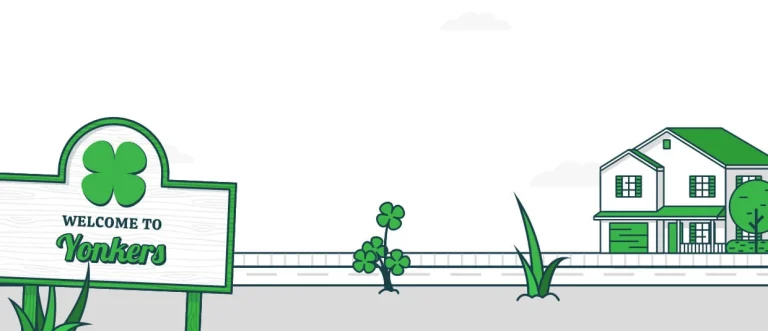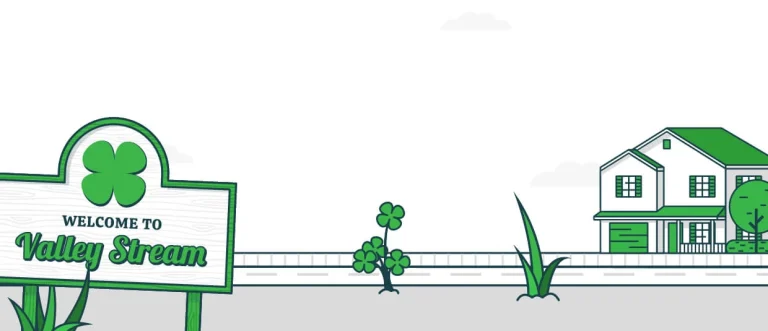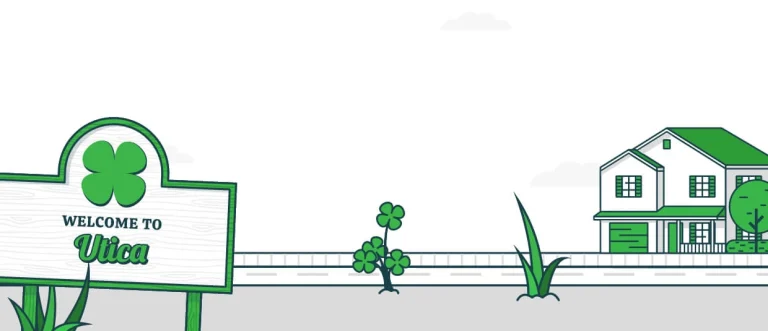Key Takeaways:
- The average home insurance cost in Florida is about $2,924, among the highest in the nation, but rates depend on location, provider, property value, and more.
- South Florida tends to have the highest premiums in the state.
- Florida’s homeowners insurance market is slowly recovering from a crisis that began around 2020. Inflation, soaring populations, construction costs, and other factors increased property values and insurance premiums, which have caused several carriers to fail or withdraw from the state.
- Universal Property & Casualty and Citizens are the largest homeowners insurance companies in Florida.
The Best Homeowners Insurance Companies in Florida
The best home insurance company in Florida will vary by person depending on your coverage needs and budget, but it will likely come from American Platinum, Citizens, Tower Hill, or a handful of other companies still prevalent in the state. As we’ll explain, Florida is difficult for companies to write homeowners insurance policies in, leaving residents frustrated with few options.
Why You Can Trust Us: Clovered is a licensed insurance agency in Florida established in 2018 and headquartered in Fort Lauderdale. This is our home, so it’s our job to understand the insurance landscape here as best as possible.
We partner with most national lending institutions and top homeowners insurance companies in Florida to help you find and maintain coverage. Plus, if you choose Clovered, you’re working with fellow state residents who make up your neighborhood and community and have a stake in your financial well-being.

It’s Time to Switch Your Homeowners Insurance
We partner with the nation’s top homeowners insurance companies so you can get a custom policy at an affordable price.
The Average Cost of Homeowners Insurance in Florida
Average homeowners insurance rates in Florida range from $2,070 to $13,333 annually for most people. Many factors affect a company’s average rates, with a primary consideration being home value. Companies utilize your home’s replacement cost — the cost to rebuild your house based on construction and labor expenses — to determine your needed coverage amounts.
Rates vary considerably by company. The table below breaks down the cost of house insurance in Florida from 20 common companies.
| Company | Average Premium |
|---|---|
|
Southern Oak Ins Co |
$2,070 |
|
Monarch National |
$2,210 |
|
Foremost Insurance |
$2,381 |
|
American Integrity Insurance |
$2,511 |
|
American Platinum |
$2,811 |
|
Heritage Prop & Cas Ins Co |
$2,887 |
|
Citizens Prop Ins. Corp. |
$2,945 |
|
Slide Insurance Company |
$3,553 |
|
People’s Trust Insurance |
$3,571 |
|
Florida Peninsula Insurance Co. |
$3,709 |
|
Monarch National |
$3,741 |
|
Cabrillo Coastal General Ins Co |
$3,827 |
|
Edison Insurance Company |
$3,850 |
|
Olympus Insurance Company |
$3,922 |
|
Johnson & Johnson Insurance |
$4,147 |
|
Swyfft, LLC |
$4,758 |
|
Security First |
$4,824 |
|
TypTap Insurance Company |
$6,008 |
|
AmWins |
$7,802 |
|
Bass Underwriters |
$13,333 |
|
Average |
$2,924 |
These averages are helpful, but they fail to reflect many of the factors that could cause your rates to vary when getting quotes. For instance, we mentioned that home value is critical. Rates will always climb as home value increases. Larger, more extravagant houses cost more to construct and, thus, more to insure.
Increased demand for new homes combined with supply chain shortages that hit the construction industry around 2020 during the pandemic caused building costs to rise in Florida, which also contributed to rising insurance rates and made low-cost home insurance in Florida more dificult to find. .
More on Florida Homeowners Insurance Companies and Wind Mitigation
Another factor critical to Florida home insurance rates is wind mitigation. Successful wind mitigation on a home can save you thousands of dollars annually.
Wind mitigation is any protection on your home that helps decrease the damage caused by strong winds like those from hurricanes. These protections include certain roof attachments and coverings, extra water-resistant seals, and impact-resistant doors and windows (to learn more about Florida’s wind mitigation features, see Form OIR-B1-1802).
With hurricane-force winds being such a threat throughout the state, you can imagine why Florida home insurance companies place such an emphasis on it. Insurers are keen to reduce the risk of hurricane damage to their covered properties. Also, Florida law requires carriers to reduce rates for homeowners who implement wind mitigation features.
Premiums will differ with and without wind mitigation. Older homes, which are often more prone to wind damage due to their aging components and outdated construction, tend to have higher premiums than newer houses.
Florida revamped its building codes in the wake of Hurricane Andrew in 1992, which eventually led to new state construction regulations enacted in the early 2000s to strengthen houses’ abilities to stand up to high winds from hurricanes.
Residents with older homes will often have the most difficult time finding coverage. Nearly every Florida homeowners insurance company is skeptical of covering older houses due to their higher likelihood of suffering damage. Some exceptionally old properties won’t qualify for a standard policy, known as HO-3 insurance in Florida, and will instead need an HO-8 insurance policy specifically designed for old houses.
Newer homes have less wear and tear for insurers to worry about, and newer components are built with hurricane protection in mind. Premiums for house insurance in Florida get significantly lower on newly constructed homes.
You won’t know which company has the cheapest rates for your situation until you shop around. Finding cheap home insurance in Florida is nearly impossible without comparing several quotes.

It’s Time to Switch Your Homeowners Insurance
We partner with the nation’s top homeowners insurance companies so you can get a custom policy at an affordable price.
How Much Is Homeowners Insurance in Florida Per Month?
The average house insurance in Florida is about $244 monthly, with rates ranging from $138 to $432 for most people. However, you may encounter lower or higher rates based on where you live in Florida, in addition to several other prominent variables like your home’s value and wind mitigation features.
Homes closer to the ocean on either of Florida’s coasts usually have higher premiums because the risk of wind and flood damage is greater as you approach the water. Additionally, the highest premiums tend to be in Southeast Florida, where hurricane risk is the most significant and property values are the highest.
The table below lists average premiums in many of Florida’s largest cities by population.
| City | Monthly Premium | Yearly Premium |
|---|---|---|
| $218 | $2,617 | |
| $432 | $5,178 | |
| $225 | $2,700 | |
| $309 | $3,702 | |
| $223 | $2,680 | |
| $327 | $3,920 | |
| $260 | $3,114 | |
| $138 | $1,661 | |
| $247 | $2,959 | |
| $150 | $1,798 | |
|
Palm Bay |
$297 | $3,565 |
| $340 | $4,078 | |
| $240 | $2,881 | |
| $310 | $3,717 | |
|
Deltona |
$249 | $2,989 |
| $192 | $2,300 | |
| $156 | $1,866 |
In addition to natural disaster susceptibility, rates vary by location due to crime rates, carrier strategy, and other factors. Read on for a county-by-county breakdown of the best and worst homeowners insurance companies in Florida in terms of price.
Florida Homeowners Insurance Rates by County
Florida property insurance rates are highest in Monroe, Miami-Dade, Broward, and Palm Beach Counties. Their coastal locations increase the likelihood of hurricane damage, which, coupled with older homes and higher construction costs, creates costly property insurance for residents.
The most expensive counties for average homeowners insurance in Florida are all concentrated in South Florida. The average Florida home insurance cost for older homes with no wind mitigation in this part of the state is extremely high. Most companies won’t even insure especially old homes in South Florida without wind mitigation.
Florida coastal property insurance rates are the highest in the state. Monroe County, which consists of the Florida Keys, has the most expensive home insurance rates in Florida. The small islands are extremely prone to wind and water damage.
The rest of the state’s most costly areas lie along the southeast coast, from Homestead and Florida City up to Jensen Beach along the Gold and Treasure Coasts. It will be hard to find cheap homeowners insurance in Florida in this region, especially if you have an older house.
Older dwellings cost more to insure than newer ones because many components in older homes, such as the roofing, pipes, and wiring, become compromised with age and are more likely to fail due to wear and tear or a severe weather event.
Also, in the early 2000s, Florida adopted some of the nation’s strictest building codes (which are still tweaked from time to time) to combat hurricane damage. Houses built before these ordinances are less likely to withstand strong winds.
Who Has the Cheapest Homeowners Insurance in Florida?
Cheap homeowners insurance in Florida is found near the north and center of the state, notably around Gainesville and Palatka, or in the interior of the Panhandle, where insurance premiums average $2,787 to $2,987 per year for newer homes.
You can find the most affordable homeowners insurance in Florida away from the coast. Average rates are almost four times lower than in the costly counties of South Florida.
Alachua, Clay, Columbia, and Putnam counties have the lowest average rates. All connect in the northern central part of the state and don’t have any coastline. Leon County is in Florida’s Panhandle and touches the Georgia border. It also doesn’t reach the coast and, notably, contains Florida’s capital, Tallahassee.
If you’re seeking cheap house insurance in Florida, you’ll have to move away from the coast. You must weigh if the cost of missing out on the beaches is worth the savings on home insurance. Also, getting Florida homeowners insurance without hurricane coverage would likely save you a lot of money since wind coverage is one of the most significant premium drivers in a plan. Foregoing wind coverage isn’t ideal protection-wise, but it would produce steep savings.

It’s Time to Switch Your Homeowners Insurance
We partner with the nation’s top homeowners insurance companies so you can get a custom policy at an affordable price.
Why Is Homeowners Insurance So Expensive in Florida?
It’s so hard to find affordable homeowners insurance in Florida because of high property values, obfuscating legislation, and the possibility of natural disasters. The homeowners insurance market is much more costly for companies, which makes it more expensive for residents.
The Florida market’s downturn started around 2020 when rates steadily began to rise in the wake of the pandemic. Construction costs increased due to supply chain issues.
Then, nearly a dozen Florida property insurers went out of business by the end of 2022, citing issues with litigation, reinsurance, and coping with the impending and recent hurricanes. Additionally, several well-known home insurance providers in Florida, such as Allstate and Progressive, withdrew or non-renewed hundreds of thousands of policies in the state.
Florida Homeowners Insurance Crisis Explained
In early 2024, there was a statewide Florida homeowners insurance increase. The number of home insurance companies writing new policies diminished greatly, especially in South Florida, where property values are generally the highest and hurricane risk is the greatest. Citizens, the publicly run insurer of last resort, grew to have the most policyholders of any company in the state.
While some signs of optimism appeared in the market near the end of 2024, it’s still tricky for most people to find a solid provider with affordable rates.
After a series of legislative reforms, there are ten new homeowners insurance companies in Florida as of 2025. Additionally, Citizens will reduce rates by an average of 5.6% in the year.
Getting the Best Homeowners Insurance in Florida
Every policyholder is different; getting the best Florida homeowners insurance for your situation depends on your coverage needs and budget. Citizens, the state-run insurer of last resort, should ideally be a fallback option for coverage. You’re best off looking for alternatives to Citizens Insurance in Florida for the best protection.
Homeowners insurance policies protect your property and personal liability in several ways. Plans protect from several possible damage sources, officially called perils. In Florida, the most common covered perils include hurricanes, fires, and theft. Your liability coverages also protect you financially in case of a lawsuit. Plans include six distinct coverage areas as explained in this Florida homeowners insurance policy breakdown:
Coverage A: Dwelling
Dwelling coverage accounts for your home’s physical structure and components, including the walls, roof, countertops, flooring, pipes, and more. Your policy’s dwelling coverage limit should be close to your home’s replacement cost.
Coverage B: Other Structures
Other structures coverage protects fixtures on your property unattached to the main house, such as fences, detached garages, sheds, carports, and in-ground pools. Your other structures limit is typically 10% of your dwelling coverage limit.
Coverage C: Personal Belongings
Personal property coverage guards your belongings in and around your property from theft and other peril damage. Covered items include furniture, electronics, jewelry, clothing, art, tools, bicycles, and more.
Coverage D: Loss of Use
Loss of use coverage helps pay for living expenses if your home gets damaged by a covered peril and you must move out temporarily. Through loss of use coverage, your insurer can cover lodging, groceries, and more while you’re displaced.
Coverage E: Personal Liability
Liability coverage safeguards you financially if you’re found legally liable for someone’s injuries or property damage, such as a dog bite or a tree falling on your neighbor’s property. Your insurer can help cover legal fees, medical bills, and more.
Coverage F: Medical Payments
Medical payments coverage covers minor medical expenses if someone gets injured on your property, regardless of fault. Policies typically have liability limits in the hundreds of thousands and medical payments limits between $1,000 and $5,000.
Qualifying for discounts: Be sure to ask about available discounts when quoting. From security systems to wind mitigation, the top home insurance companies in Florida offer an array of discounts, from security systems to wind mitigation. Discount type and extent vary by carrier, but some common ones include:
- Home security discounts (alarm systems, deadbolt locks)
- Bundling discount
- New homeownership discount
- Occupation-based discounts (retiree, military service)
- Claims-free discount
Adjusting Coverage Amounts: Ensure your coverage amounts meet your property needs, but be wary of opting for excess coverage you don’t need. For example, we recommend conducting a home inventory to value your belongings and determine the precise amount of personal property coverage you need.
Additionally, you should revisit your coverage amounts periodically to adjust as needed if you make changes around your home, like a renovation that increases your dwelling coverage need. Consult a Florida homeowners insurance calculator to help determine your home’s current replacement cost, which will also influence your other structures and loss of use limits.
Comparing Multiple Florida Homeowners Insurance Quotes Online: The most proven way to save money on homeowners insurance is by comparing multiple quotes before you buy, so you ensure you find the best deal. Many companies offer ways to quote entirely online. Other times, you may have to get in touch with a company representative to complete the quote.
Working with an independent agent who partners with several carriers is often the best route to finding possible savings while meeting coverage needs. An agent’s job is to present you with the available options and find the optimal match, increasing your odds of finding the best home insurance in Florida.
Best Homeowners Insurance for Older Homes in Florida
Older homes tend to have higher insurance rates, and not all home insurers in Florida will cover them.
The definition of an older home will vary by company since each has different underwriting guidelines. For example, with American Platinum, our sister provider, homes must be built before 1976 to be eligible for standard HO-3 insurance coverage.
Exceptionally old houses in Florida will need an HO-8 policy specially designed for older homes with dated construction and hard-to-replace features. Companies will also typically require an inspection on older homes.
As we mentioned earlier, roof age is especially prominent in housing insurance in Florida. Any dated features, including pipes, wiring, siding, and roofing, can negatively affect an older dwelling’s ability to withstand severe weather, which is why insurers are skeptical about covering them and often charge higher premiums to do so.

It’s Time to Switch Your Homeowners Insurance
We partner with the nation’s top homeowners insurance companies so you can get a custom policy at an affordable price.
How a Florida Insurance Agency Can Help
With so much to remember during an insurance search, there’s no shame in asking for help in the process. In fact, it’s probably a wise move. Florida homeowners insurance agents can help you find the right policy for your needs at the best price.
An agent’s job is to take your information and essentially pair it with a policy from one of their partner Florida home insurance providers. There are two types of agents: captive and independent.
A captive agent represents only one insurance company. Independent insurance agents of Florida, on the other hand, have relationships with multiple carriers and can find you the best deal among their partners. Clovered in an independent insurance agency.
You may also encounter homeowners insurance brokers in Florida. Brokers are like agents in that they will find you a deal on insurance. However, brokers may not help you with claims or other administrative dealings with your insurer when the time comes, while agents often do. Also, there are different licensing requirements for agents and brokers.
Is Homeowners Insurance Required in Florida?
Homeowners insurance, sometimes called hazard insurance in Florida, isn’t required by law, but that doesn’t mean you don’t need it. Most people still need coverage because mortgage lenders mandate it for the life of a loan.
Lenders mandate property insurance in Florida to protect their investments. If your house gets destroyed by a covered peril, the insurance company will pay out the homeowner (you) and the lender during a claim, ideally making all parties whole again.
Even if you don’t have a mortgage and paid off your house in full, going without homeowners insurance in Florida is typically unwise. A proper policy is a quality financial safety net that guards against Mother Nature and other unexpected events in several ways.
Florida Homeowners Insurance Laws
Insurance companies are regulated by the state government. All carriers have rules and regulations they must follow. For example, your insurer must acknowledge your claim within 14 days of reporting it and receive full settlement payment for your claim payment of the undisputed portion of your claim, or your insurance company’s denial within 90 days, pending dual interests in the policy.
Policyholders also have rules they’re expected to follow in their policy. For instance, don’t submit fraudulent information to your insurance provider during the quoting or claims process. Be sure to read your policy thoroughly to understand your expectations and coverages.
How to Get Homeowners Insurance Quotes in Florida
Your best bet to find affordable coverage in the Sunshine State is to gather several home insurance quotes in Florida and compare rates, coverages, discounts, and more. You won’t know you’re getting the best deal until you assess your options.
Our team at Clovered, an independent insurance agency, tries to make the home insurance shopping process as easy as possible. You can use our online quoting tool to compare rates from some of the top-rated homeowners insurance companies in Florida online in minutes.
Or, you can call one of our licensed agents during business hours at 833-255-4117 for Florida home insurance quotes over the phone. We’re happy to help you however we can.
The editorial content on Clovered’s website is meant to be informational material and should not be considered legal advice.

 Average Rates of the Best Homeowners Insurance Companies in Florida
Average Rates of the Best Homeowners Insurance Companies in Florida 

